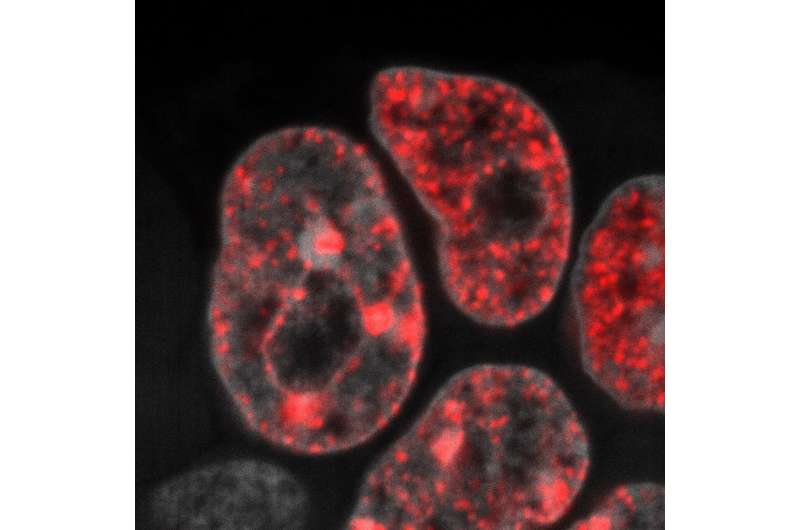A speed limit could be a breakthrough for stem cell therapy

A totipotent cell is a single cell that can give rise to a new organism, if given appropriate maternal support. Totipotent cells have many properties, but we do not know all of them yet. Researchers at Helmholtz Munich have now made a new discovery.
"We found out that in totipotent cells, the mother cells of stem cells, DNA replication occurs at a different pace compared to other more differentiated cells. It is much slower than in any other cell type we studied," says Tsunetoshi Nakatani, first-author of the new study.
DNA replication, in fact, is one of the most important biological processes. Throughout the course of our lives, each time that a cell divides it generates an exact copy of its DNA so that the resulting daughter cells carry identical genetic material. This fundamental principle enables faithful inheritance of our genetic material.
The researchers discovered that the speed of DNA replication is also low in totipotent-like cells, which scientists can culture in a petri dish. Tsunetoshi Nakatani adds that "this led us to the question: If we manage to change the speed at which DNA replicates, can we improve the reprogramming of cells into totipotent cells?"
Less speed, improved cellular reprogramming
In an outstanding experimental effort, the researchers observed indeed that slowing down the DNA replication speed—for example by limiting the substrate that the cells use for DNA synthesis—increases reprogramming efficiency, that is, the rate at which cells can convert to another cell type.
"This is amazing," says Maria-Elena Torres-Padilla, the leader of the study. "Over the years, we have been studying totipotent cells in order to learn how nature has made them so incredibly capable of generating all cell types of our bodies. This is a fundamental strategy of our research towards regenerative medicine approaches. This new concept is very simple, yet extremely important and we believe that it is a huge advance for stem cell therapy."
The research was published in Nature Genetics.
More information: Maria-Elena Torres-Padilla, DNA replication fork speed underlies cell fate changes and promotes reprogramming, Nature Genetics (2022). DOI: 10.1038/s41588-022-01023-0. www.nature.com/articles/s41588-022-01023-0




















